This article was co-authored by Cassandra McClure. Cassandra McClure is a clean beauty advocate, working to increase use of sustainable and healthy cosmetics, based in Palo Alto, California. She has worked in the beauty and cosmetic industries for over 15 years, as a model, makeup artist, and entrepreneur. She has a Masters in High Definition Makeup from the MKC Beauty Academy.
There are 20 references cited in this article, which can be found at the bottom of the page.
This article has been viewed 298,302 times.
Eyebrows frame your face and play an important role in your facial appearance and expressions. If the hair in your eyebrows starts falling out, you are sure to see a difference in your appearance, which you may want to rectify. Many conditions can cause eyebrow loss.[1] However, you can usually take steps to reverse the effects, such as eating a healthy diet and adjusting your beauty routine or lifestyle to account for the natural aging process.
Steps
Preventing Eyebrow Hair Loss
-
1Try coconut oil as a moisturizer. Keeping skin moisturized helps keep hair moisturized, as well. Coconut oil, in particular, is helpful for preventing hair loss, as it helps reduce protein loss in your hair. Try applying coconut oil to your eyebrows before and after washing your face.[2]
-
2Stop overplucking. Tweezing too much can lead to more permanent hair loss. In other words, not only do you remove the hair, you may prevent it from growing back in the future. If you've noticed hairs are not growing back, try slowing down on the plucking.[3]
- Over-plucking may also cause ingrown hairs and follicle damage.
- Always clean tweezers with alcohol before plucking to prevent transferring bacteria that can cause infection.
Advertisement -
3Monitor hormonal changes. Pregnancy, menopause, and changes in birth control are all changes in the level of estrogen in your body. Estrogen loss can lead to hair loss, so if you suspect you may have hormonal changes, talk to your doctor about taking a supplement.
-
4Reduce stress. When you are stressed, your body starts shutting down processes that aren’t necessary for survival. This shutdown can occur with physical stressors, like surgery or an illness, and emotional stress, which often manifests as physical symptoms. Loss may occur up to three months after the stressful event and may take another three to grow again.
- Start a daily meditation practice. Make time in the morning, after work or school, or before bed to calm your mind and sit quietly. Pick a time that works best with your schedule and spend at least 20 minutes focusing on your breathing.
- Yoga is a great way to get more exercise and reduce stress at the same time. It is also easier for many people to do than traditional cardio exercises and only requires a mat for practice.
-
5Stop smoking. Smoking can lead to hair loss. The chemicals in cigarette smoke and other types of tobacco smoke can break down hair cells, leading to hair loss. If you're concerned about hair loss, think about stopping to slow down the problem.
- To quit smoking, make sure your friends and family know you want to quit. They can help you avoid triggers and remind you when you forget.
- Avoid triggers that lead you to smoking, such as going to bars.
- Use aids to help you, such as patches and support groups.[4]
-
6Limit use of eyebrow makeup. Dyes, tints, and even eyebrow pencils may cause hair loss, particularly if you apply too much pressure. If you've noticed that you are losing your eyebrows, especially after starting a new makeup, consider laying off the makeup for a period of time to see if it helps.[5]
-
7Monitor any hair loss when starting new medications. Numerous medications can cause temporary or permanent hair loss, including chemotherapy,[6] antidepressants, and mood stabilizers.[7] Nonetheless, many other medications can cause hair loss in isolated cases. If you've noticed hair loss after starting a new medication, talk to your doctor about this side effect.
Eating a Balanced Diet
-
1Eat plenty of fresh produce. Make sure you are getting enough nutrients like vitamins A, C, D, and E by eating at least 5 servings of fresh fruits and vegetables daily. Include spinach and other leafy greens, carrots, tomatoes, and bell peppers. Get vitamin C from fruits like oranges, berries, and melons.
- Silica strengthens hair and is vital for hair growth.[8] Bananas, raisins, oats, and beer are all rich in silica.[9]
- Vitamin C helps the body absorb iron and produce collagen. Fruits like strawberries, blueberries, oranges, kiwi, broccoli, and a number of other fruits and vegetables are high in vitamin C.[10]
-
2Eat more lean meats and legumes. While you don't need to overeat protein, make sure you are getting enough in your diet. A balanced diet, including getting enough protein, can help reduce hair loss. Protein can also strengthen your hair and keep it healthier.[11]
- Women 19-30 years old should be getting 5 1/2 ounces (or ounce equivalents) a day, while women 31 and older should be getting 5 ounces. Men 19-30 should be getting 6 1/2 ounces (or ounce equivalents) a day, while men 31-50 should be getting 6 ounces and men 51 and older should be getting 5 1/2 ounces.
- "Ounce equivalents" are servings of other proteins besides meat that the government considers equal to an ounce, such as 1 egg, 1/2 an ounce of nuts, and a 1/4 cup of beans or tofu.[12]
- Stick with lean sources of protein, like fish, beans, and tofu, since high fat intake can increase testosterone, which has been connected with hair loss.
-
3Get enough iron. Iron is one of the leading causes of hair loss, so making sure you get enough is important. Have your doctor check your iron levels, as you may need to take a supplement if you're not getting enough. Animal protein provides a good amount of iron, but so do leafy greens, lentils, and broccoli.[13]
- The reason iron can cause hair loss is that your body may steal from your hair follicles if it is iron deficient.
-
4Eat omega-3 fatty acids. While omega-3 fatty acids won't necessarily prevent hair loss, especially if it's from a medical condition, they do contribute to healthier hair, and they are used by hair cells near the skin. Plus, they're good for your overall health.[14]
- Eat fatty fish like salmon, trout, and herring.
- Vegetarians can get omega-3 from walnuts, pumpkin seeds, and avocados.
-
5Get plenty of B vitamins. B vitamins include riboflavin, folate, biotin, niacin, and others. These vitamins work together to help sustain healthy hair, which in turn can help prevent hair loss. You can take a supplement, but you can also get many of these vitamins from your diet.
- Leafy greens, vegetables from the ocean, and whole grains are all good sources of B vitamins.
-
6
-
7Get enough biotin. Not getting enough biotin in your diet can make your hair straw-like and brittle. When your hair is brittle, it's more likely to break, leading to you losing hair. Increasing biotin in your diet can help with hair loss.[17]
- Eggs yolks, whole grains, yeast, soy flour, and liver all have high levels of biotin.
-
8Drink enough water every day. Being hydrated is necessary for good health, including healthy hair. Make sure you are drinking the recommended amount of water. The Institute of Medicine recommends that men consume 13 cups of water daily and women consume 9 cups of water daily.[18]
- Try drinking water with fresh fruit like strawberries or oranges in it for added flavor.
-
9Consider taking a hair growth supplement. If you are having trouble getting your necessary nutrients from diet alone, you may want to add a supplement that is specifically designed for reducing hair loss and contains all of these important vitamins and minerals.
- You may also consider taking a supplement with 500 to 1,000 milligrams of L-Lysine daily, which can help improve hair loss.
- Many eyebrow growth products are currently on the market, including gels and serums. None have been approved by the FDA for treating eyebrow loss. Use any such products with caution and monitor closely for side effects.
-
10Maintain a consistent blood sugar. If you're diabetic, having uncontrolled blood sugars over a long period of time can lead to hair loss. Therefore, to decrease this problem, try to keep your blood sugars under control through eating the prescribed diet for diabetics, taking your medications, and monitoring your blood sugars.
- If your blood sugars are often out of control, talk to your doctor about changing up your medication.
Knowing When to See a Doctor
-
1See the doctor for sudden hair loss. If you suddenly lose your eyebrows, that could be a sign of a more serious problem, particularly if you only lose your eyebrows or eyelashes and not other hair. Sudden loss of eyebrows can be a symptom of eye conditions, skin conditions, systematic disorders, infections, and nutritional deficiencies. Seeing your doctor can help you narrow down the condition.[19]
- Often, when you treat the underlying condition causing the hair loss, you're hair will grow back.
-
2Check for hypothyroidism. If you also notice unexplained weight gain, chronic fatigue, feeling depressed, or feeling colder than usual in low temperatures, your thyroid gland may not be producing enough hormones. You may also notice your periods getting heavier or becoming sporadic. Hypothyroidism is most common in women, especially over age 50, and it can be treated with a synthetic hormone.[20]
- Talk to your doctor if you suspect you may have this condition. Your doctor will use a physical examination as well as a blood test to diagnose hypothyroidism.
-
3See a dermatologist for itchy skin or rashes around your brows. These patches may indicate a skin infection or interaction with a new beauty product or environmental trigger. You could also have inflammation from dermatitis or psoriasis.[21] These conditions don’t actually cause hair loss, but they can lead to it if you rub and scratch the affected areas.
- If you think you have dermatitis, make an appointment with a dermatologist and stop using any skin care products that are not made especially for sensitive skin until you see them. Even products you have used for a long time can suddenly be too harsh due to changes in your skin.
-
4See a doctor if you have large bald spots. Having thinning eyebrow hair is not a huge cause for concern, particularly if you're getting older. However, if you have completely bald spots that are splotchy on your eyebrows or other facial hair, you should talk to your doctor.[22]
-
5Know it happens with age. It's natural to lose some hair as you get older, including in your eyebrows. Everyone does. In fact, it also affects the rate at which your hair grows, so less grows back in when you lose it. While you may not be able to change this fact, know that everyone else is in the same boat as they age.[23]
- Hair loss with age comes in two forms. One form involves scarring. If you have that kind, your hair loss is likely not reversible. If you have the other kind, you may be able to reverse it.
- However, if you suddenly lose your hair and you are younger, you should see a doctor.[24]
Expert Q&A
Did you know you can get expert answers for this article?
Unlock expert answers by supporting wikiHow
-
QuestionIs it normal for eyebrow hair to fall out?
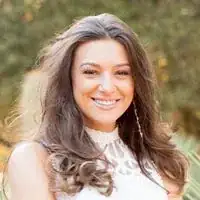 Cassandra McClureCassandra McClure is a clean beauty advocate, working to increase use of sustainable and healthy cosmetics, based in Palo Alto, California. She has worked in the beauty and cosmetic industries for over 15 years, as a model, makeup artist, and entrepreneur. She has a Masters in High Definition Makeup from the MKC Beauty Academy.
Cassandra McClureCassandra McClure is a clean beauty advocate, working to increase use of sustainable and healthy cosmetics, based in Palo Alto, California. She has worked in the beauty and cosmetic industries for over 15 years, as a model, makeup artist, and entrepreneur. She has a Masters in High Definition Makeup from the MKC Beauty Academy.
Makeup Artist
References
- ↑ http://www.ncbi.nlm.nih.gov/pubmed/18039016
- ↑ http://www.ncbi.nlm.nih.gov/pubmed/12715094
- ↑ http://u.osu.edu/buckmdblog/2009/09/02/will-shaving-my-head-make-me-bald/
- ↑ https://smokefree.gov/quitting-smoking/steps-manage-quit-day
- ↑ http://www.beautyhows.com/eye/eyebrow/eyebrow-loss-causes-remedies-treatment-and-cures/
- ↑ http://www.ncbi.nlm.nih.gov/pubmed/7631289
- ↑ http://www.ncbi.nlm.nih.gov/pubmed/10798824
- ↑ http://www.ncbi.nlm.nih.gov/pmc/articles/PMC3509882/
- ↑ http://health.usnews.com/health-news/articles/2012/06/14/10-best-foods-for-your-hair
- ↑ http://www.bbcgoodfood.com/howto/guide/what-eat-healthy-hair
- ↑ http://www.bbcgoodfood.com/howto/guide/what-eat-healthy-hair
- ↑ http://www.choosemyplate.gov/protein-foods
- ↑ http://www.bbcgoodfood.com/howto/guide/what-eat-healthy-hair
- ↑ http://www.bbcgoodfood.com/howto/guide/what-eat-healthy-hair
- ↑ http://www.hchs.edu/literature/Hair.pdf
- ↑ http://aminoacidstudies.org/l-methionine/
- ↑ http://www.bbcgoodfood.com/howto/guide/what-eat-healthy-hair
- ↑ http://www.mayoclinic.org/healthy-lifestyle/nutrition-and-healthy-eating/in-depth/water/art-20044256
- ↑ http://www.ncbi.nlm.nih.gov/pmc/articles/PMC3358936/
- ↑ https://www.nlm.nih.gov/medlineplus/ency/article/000353.htm
- ↑ https://www.nlm.nih.gov/medlineplus/ency/article/003246.htm
- ↑ https://www.nlm.nih.gov/medlineplus/ency/article/003246.htm
- ↑ https://www.nlm.nih.gov/medlineplus/ency/article/004005.htm
- ↑ https://www.nlm.nih.gov/medlineplus/ency/article/003246.htm
About This Article
Many things can lead to your eyebrows falling out, from over-tweezing to nutritional deficiencies or hypothyroidism. If you suspect this may be a symptom of a larger problem, make sure to see your doctor. Otherwise, try eating a healthy diet and adjusting your beauty routine to reverse the effects. Eat plenty of fresh produce, like spinach, carrots, oranges, bananas, and berries to load up on vitamin C and silica, which strengthens hair and is vital for hair growth. Get plenty of protein, too, like lean meats and legumes, to make your hair healthier. In addition to diet, try applying coconut oil to your eyebrows before and after washing your face to keep your skin moisturized, which is helpful for hair loss. Since the dyes and tints in eyebrow makeup can also cause hair loss, consider laying off makeup for a time to see if this helps too. For more tips from our Beauty Expert co-author, including how to take hair growth supplements to stop eyebrow hair from falling out, keep reading!
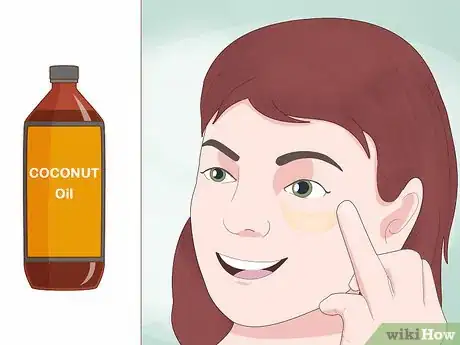
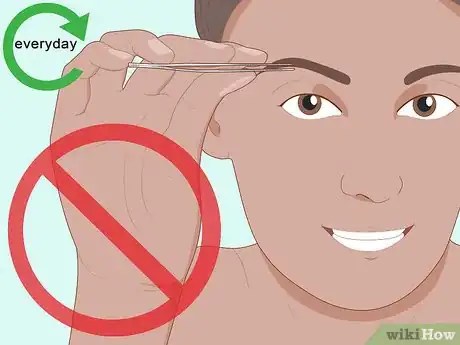
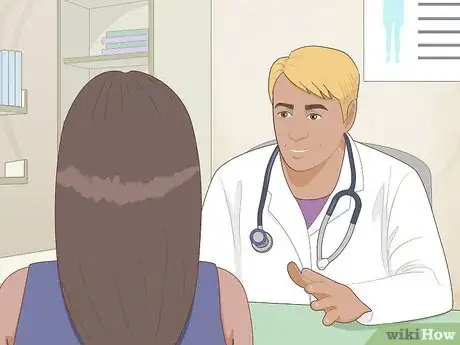
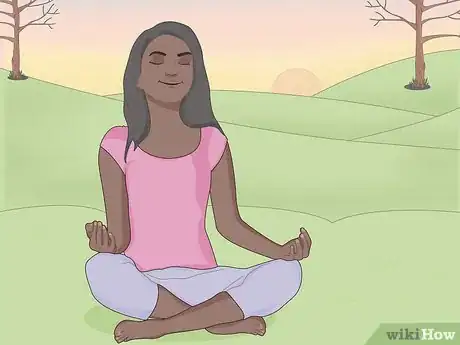
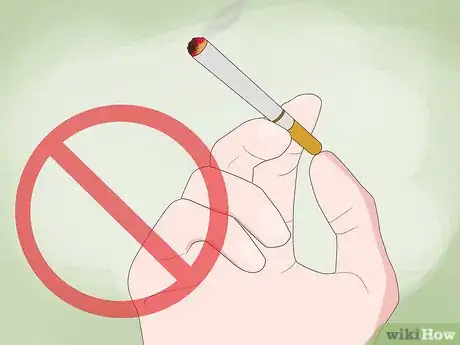
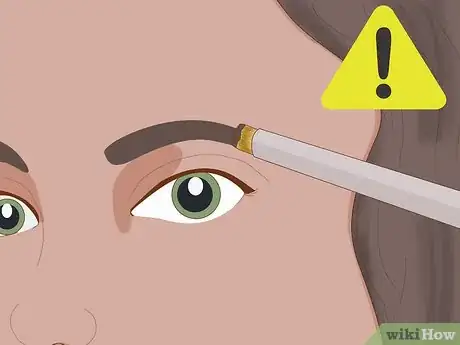
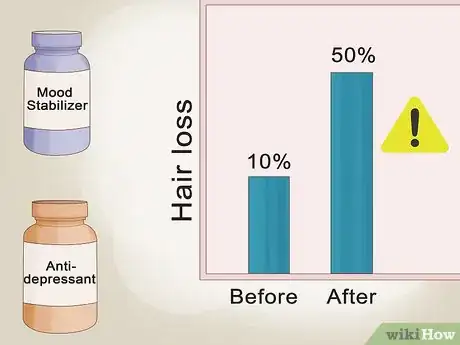
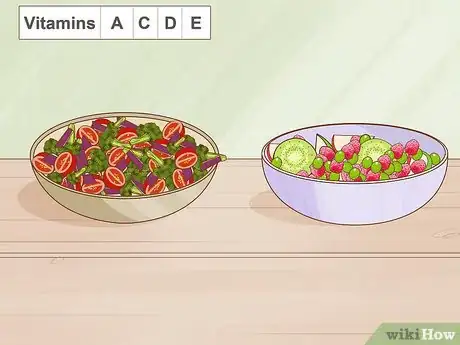
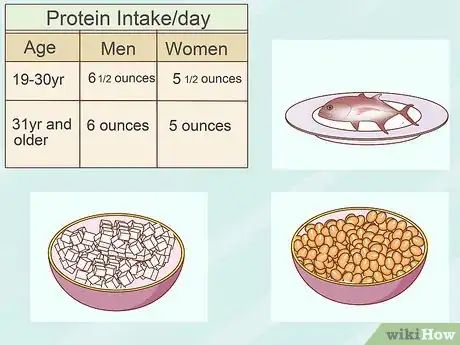
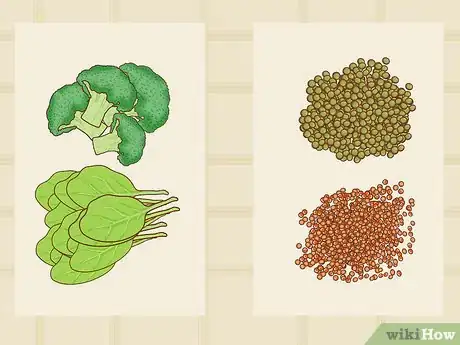
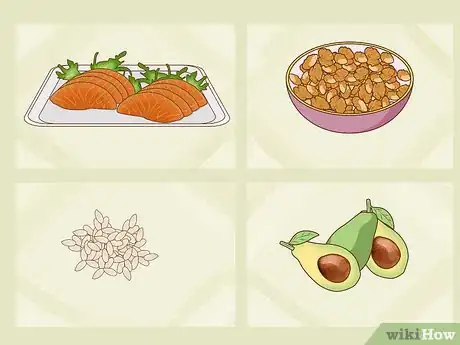
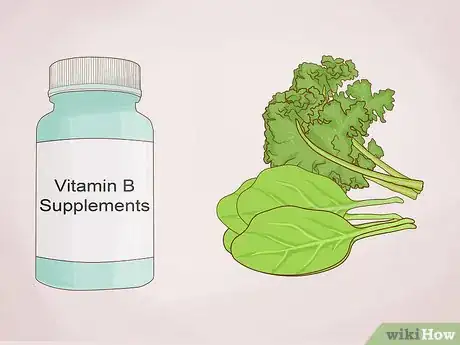
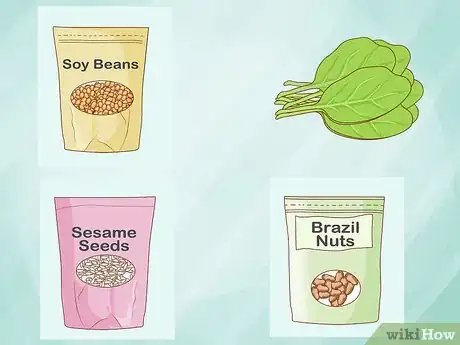
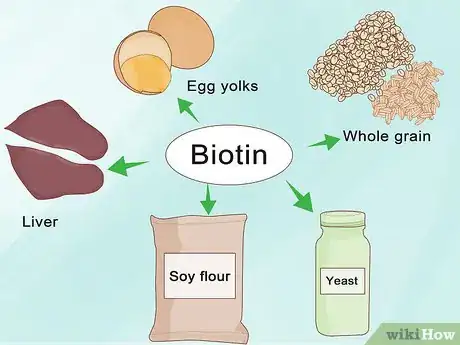
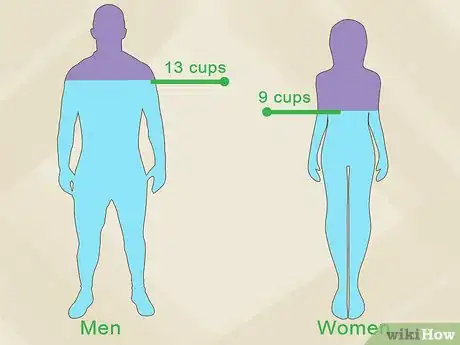
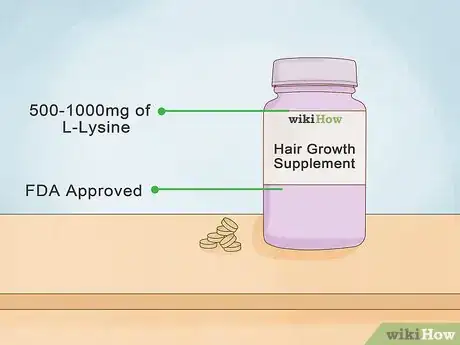
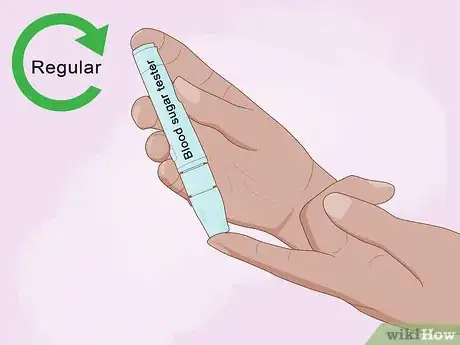
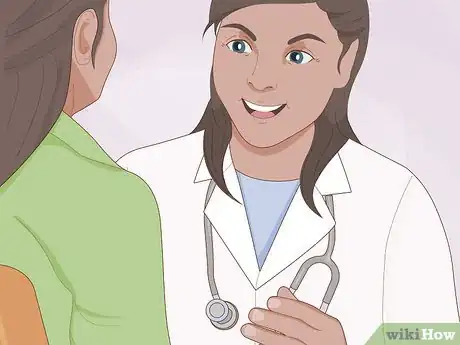
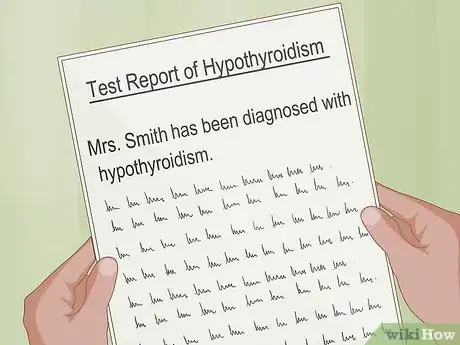
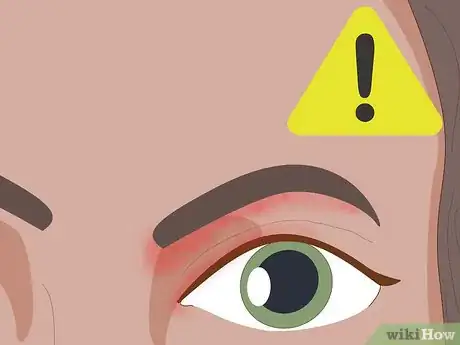
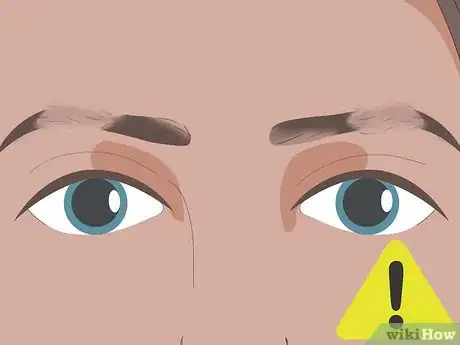
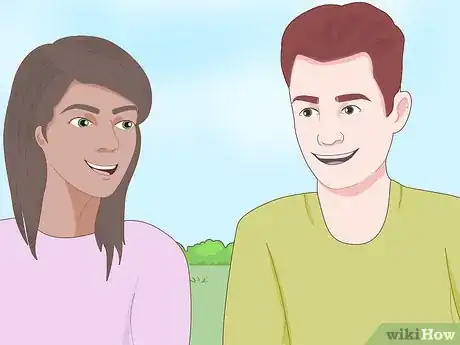
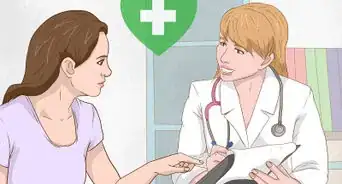
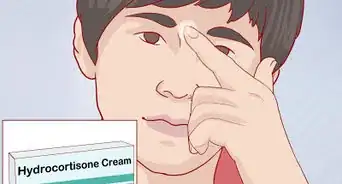
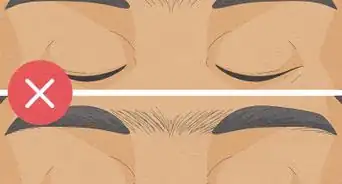
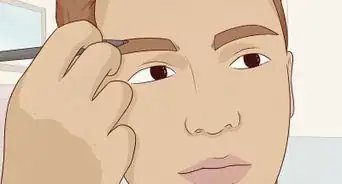
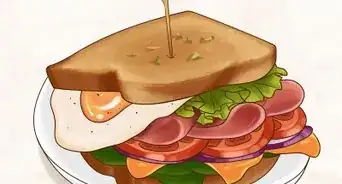
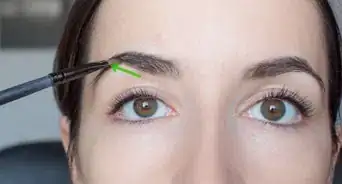
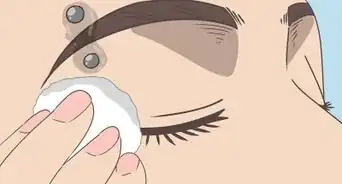







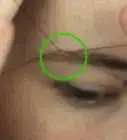
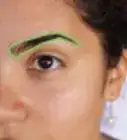
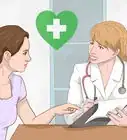
-Step-8-Version-9.webp)


































